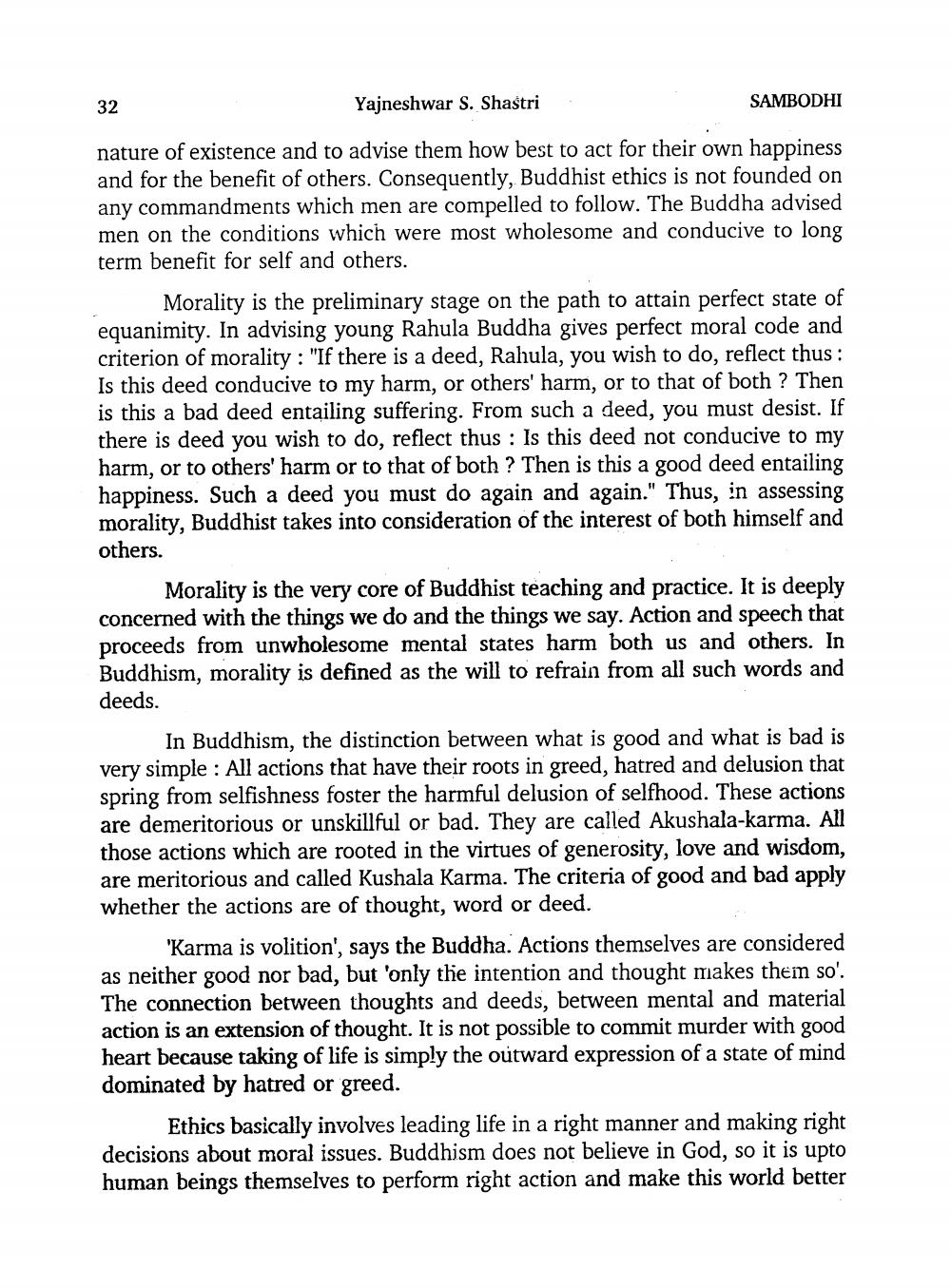________________ 32 Yajneshwar S. Shastri SAMBODHI nature of existence and to advise them how best to act for their own happiness and for the benefit of others. Consequently, Buddhist ethics is not founded on any commandments which men are compelled to follow. The Buddha advised men on the conditions which were most wholesome and conducive to long term benefit for self and others. Morality is the preliminary stage on the path to attain perfect state of equanimity. In advising young Rahula Buddha gives perfect moral code and criterion of morality : "If there is a deed, Rahula, you wish to do, reflect thus : Is this deed conducive to my harm, or others' harm, or to that of both ? Then is this a bad deed entailing suffering. From such a deed, you must desist. If there is deed you wish to do, reflect thus : Is this deed not conducive to my harm, or to others' harm or to that of both ? Then is this a good deed entailing happiness. Such a deed you must do again and again." Thus, in assessing morality, Buddhist takes into consideration of the interest of both himself and others. Morality is the very core of Buddhist teaching and practice. It is deeply concerned with the things we do and the things we say. Action and speech that proceeds from unwholesome mental states harm both us and others. In Buddhism, morality is defined as the will to refrain from all such words and deeds. In Buddhism, the distinction between what is good and what is bad is very simple : All actions that have their roots in greed, hatred and delusion that spring from selfishness foster the harmful delusion of selfhood. These actions are demeritorious or unskillful or bad. They are called Akushala-karma. All those actions which are rooted in the virtues of generosity, love and wisdom, are meritorious and called Kushala Karma. The criteria of good and bad apply whether the actions are of thought, word or deed. 'Karma is volition', says the Buddha. Actions themselves are considered as neither good nor bad, but 'only the intention and thought makes them so'. The connection between thoughts and deeds, between mental and material action is an extension of thought. It is not possible to commit murder with good heart because taking of life is simply the outward expression of a state of mind dominated by hatred or greed. Ethics basically involves leading life in a right manner and making right decisions about moral issues. Buddhism does not believe in God, so it is upto human beings themselves to perform right action and make this world better




